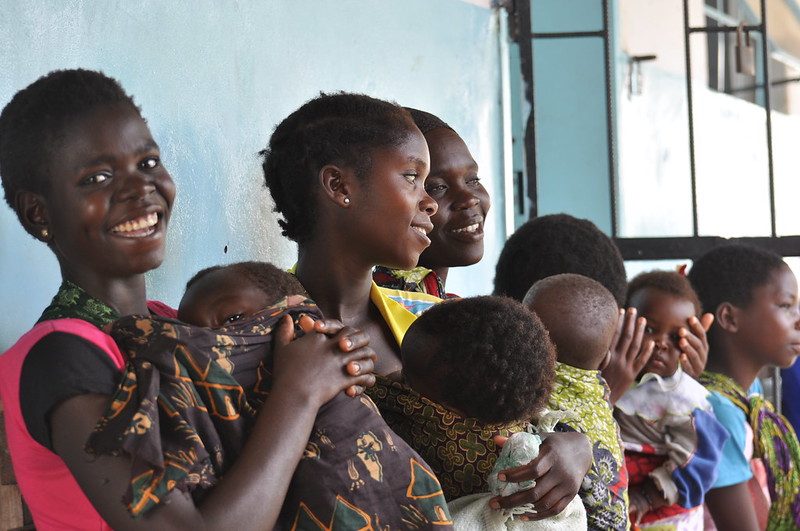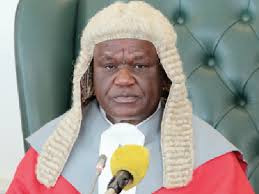
Mariah Kadzongwe (not her real name) left her family home in Matsvai village under Chief Nyashanu in Buhera to stay with her sick aunt in another village close to Murambinda growth point.
When she left, Kadzongwe, who was doing Form 1, was excited to experience new adventures, apparently a better life at her aunt’s home whose husband was regarded better off in their community.
Her aunt’s two sons were working in South Africa, so Kadzongwe was brought in to assist with household chores as her aunt was battling diabetes.
While in Form 2, her aunt succumbed to the diabetes and it was agreed that she continues with her education while at her aunt’s place.
“That did not happen because my father told people at a cultural ceremony (kurova guva) that I was to marry my late aunt’s husband as part of the custom called chimutsamapfuwa,” Kadzongwe said.
“I was just 15 and in Form 3, I cried and no one listened.”
Kadzongwe’s predicament is faced by hordes of girls in Zimbabwe, who are not being protected by the laws. Their fundamental civil liberties have been violated because of traditional practices and norms.
Despite Zimbabwe having ratified various international conventions and declarations on child rights particularly the Convention on the Rights of the Child (1989) and the Convention on the Elimination of All Forms of Discrimination against Women (1979), many girls continue to suffer at the hands of discriminatory laws.
- Chamisa under fire over US$120K donation
- Mavhunga puts DeMbare into Chibuku quarterfinals
- Pension funds bet on Cabora Bassa oilfields
- Councils defy govt fire tender directive
Keep Reading
Zimbabwe has put in place various national legislative instruments aimed at guaranteeing the girl child’s legal rights, particularly the recent Marriage Act, which allows girls to marry at the age of 18.
Despite the promulgation of the Marriages Act coupled with international conventions as well as domestic legislative instruments, child marriages remain prevalent in Zimbabwe, particularly in rural communities where customary law has been allowed to overcome formal law.
According to UNFPA, globally, one in every five girls is married, or in union, before reaching the age of 18 years.
In developing countries, Zimbabwe included more than 32% of girls are married before the age of 18 and 12% of girls are married before the age of 15.
In Zimbabwe approximately one in three girls are married before the age of 18 years.
“I became a mother at 16, but my husband died before my child turned two years,” Kadzongwe said.
“After his burial I was told to leave their home and went back home where I remarried.”
Kadzongwe says her marriage to her second husband, who was 15 years older, was characterised by violence.
“He took advantage of our situation at home and would assault me,” she said.
“When I reported my husband to the traditional leaders, the case would be swept under the carpet.
“I had to run away and came to Murambinda to look for a job.”
Jobs were hard to come by compelling Kadzongwe to join the sex work bandwagon.
“I am here because I had suffered a lot in an abusive marriage something that our culture accepted,” Kadzongwe said.
“I am now a sex worker here at the growth point and my second husband died.
“I take care of my two children who are at home with my mother and this one I stay with here at the growth point.”
Kadzongwe, now 25, said she did not join the oldest profession by choice, but circumstances and failure by her community to protect her.
“I am now living positively with HIV, but it’s something that could not have happened if my community protected me,” she said.
“I performed very well at school, but my parents thought otherwise.”
Tafadzwa Dinga, a micro planner under a UNFPA-funded programme being implemented by the National Aids Council (NAC) in Buhera, said they were working with a number of young women who are in the same predicament as Kadzongwe.
“Most of these sex workers that we are working with here at Murambinda had similar situations like that of this lady you are referring to,” Dinga said.
“They were married as young girls, but many left due to the abusive nature of such kind of relationships and they ended here at the growth point.
“We are now working with these women in a number of programmes, including on the proper use of condoms, ART adherence and dangers of drug and alcohol abuse.”
Many young women like Kadzongwe suffer due to the conflict between formal and customary legal systems that is frequently unaddressed.
“In the case of child marriages, customary law has been allowed to prevail over legislative instruments,” said Dorothy Chirwa-Tumbo, a social commentator.
“There are increasing cases of child marriages in the society and little is being done legally to deal with that.”
According to Platform for Youth Development Trust (PYD), a community-based organisation in Chipinge, harmful cultural practices are a structural problem in the area and there are different forms in which this phenomenon is manifesting.
“These harmful cultural practices are manifesting in the district because women are torn between breaching confidentiality by using the law and observing allegiance to a patriarchal culture,” said PYD gender and advocacy officer Cynthia Gwenzi.
While some countries like Mozambique, Zambia, Uganda and Ghana, among others have come up with strategies and policies to curb child marriages, Zimbabwe has none, save for the January 20, 2016 Constitutional Court ruling and the recent Marriage Act.
Chirwa-Tumbo said the issue of child marriages in Zimbabwe was an elephant in the room. She said there was lack of political will in dealing with the scourge, particularly in rural areas.
“There is lack of political will in dealing with child marriages in the country despite having the new law that helps bring perpetrators and offenders to book,” she said.
She says overcoming child marriages requires a multi-pronged approach that ensures all Zimbabweans play their part.
“First of all, society must understand the negative effects of child marriages such as perpetual cycles of poverty, maternal mortality, marginalisation of women in positions of leadership, GBV and dragging in development among many issues,” Chirwa-Tumbo said.
“Secondly, there must be water-tight laws that should be backed up by a strong justice system that delivers for the best interests of the child.
“Thirdly, the government must earnestly invest in children’s education as one of the firm social protection systems to reduce vulnerabilities to child marriages and child labour.”
Speaking at a ceremony ahead of the Day of the African Child, Women’s Affairs, Small and Medium Enterprise Development deputy minister Jennifer Mhlanga said efforts were being done to address the child marriages scourge in the country.
“The government of Zimbabwe has put in place institutions, law and policies that guard against child marriage in the country,” Mhlanga said.
“I’m happy that on May 27, 2022 the President of Zimbabwe signed into law the Marriages Act that prohibits the marriage of minors under the age of 18.”
The United Nations applauded the recent adoption of legislation in Zimbabwe and the Constitutional Court judgement, affirming that no child under the age of 18 is legally allowed to marry.
While this legislation is important, the UN said it was not enough.
“We applaud the recent adoption of legislation setting the legal age for marriage to 18 years,” said UN Women representative Fatou Aminata Lo.
“This is a major development that comes as a result of years of evidence-based advocacy and we owe it to the girls of this country to enforce this law so that they can be seen for what they are: girls, not brides, not free labour, not commodities.
“Girls looking up to us to remove the many obstacles society has put on their pathways.”
UNFPA country representative Esther Muia said the impact of child marriage and its negative health and social empowerment outcomes was not to be underestimated in Zimbabwe.
“The well-being, and the fulfillment of adolescent and young women’s full potential depends on our Joint, cohesive action to eliminate this practice,” Muia said.
NAC acting provincial manager for Manicaland Simbarashe Maquina acknowledged that child marriages were prevalent in the province something that was fuelling new HIV infections.
“Manicaland province is among provinces that have a high prevalent rate of child marriages,” Maquina said.
“We have come up with a number of programmes including engaging traditional authority structures with the aim of transforming communities to be more sensitive on sexual and reproductive health and rights.”
According to recent NAC data, 3 171 girls and women aged between 15 and 19 were booked for the first antenatal care during the first quarter of this year.
The province recorded 33 pregnancies within the 10 to 14 age group.
For Kadzongwe, she wants to see her two daughters go to university and marry after 18 years.
“My wish is to see my daughters study and go to university and choose whom and when to marry,” she said.
“I don’t want to spoil their lives, let alone use harmful practices to ruin their lives.”
Kadzongwe is now a peer educator and she says her focus is on raising awareness on gender-based violence, including child marriages.










